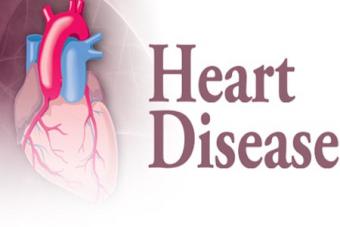- Home
- Medical news & Guidelines
- Anesthesiology
- Cardiology and CTVS
- Critical Care
- Dentistry
- Dermatology
- Diabetes and Endocrinology
- ENT
- Gastroenterology
- Medicine
- Nephrology
- Neurology
- Obstretics-Gynaecology
- Oncology
- Ophthalmology
- Orthopaedics
- Pediatrics-Neonatology
- Psychiatry
- Pulmonology
- Radiology
- Surgery
- Urology
- Laboratory Medicine
- Diet
- Nursing
- Paramedical
- Physiotherapy
- Health news
- Fact Check
- Bone Health Fact Check
- Brain Health Fact Check
- Cancer Related Fact Check
- Child Care Fact Check
- Dental and oral health fact check
- Diabetes and metabolic health fact check
- Diet and Nutrition Fact Check
- Eye and ENT Care Fact Check
- Fitness fact check
- Gut health fact check
- Heart health fact check
- Kidney health fact check
- Medical education fact check
- Men's health fact check
- Respiratory fact check
- Skin and hair care fact check
- Vaccine and Immunization fact check
- Women's health fact check
- AYUSH
- State News
- Andaman and Nicobar Islands
- Andhra Pradesh
- Arunachal Pradesh
- Assam
- Bihar
- Chandigarh
- Chattisgarh
- Dadra and Nagar Haveli
- Daman and Diu
- Delhi
- Goa
- Gujarat
- Haryana
- Himachal Pradesh
- Jammu & Kashmir
- Jharkhand
- Karnataka
- Kerala
- Ladakh
- Lakshadweep
- Madhya Pradesh
- Maharashtra
- Manipur
- Meghalaya
- Mizoram
- Nagaland
- Odisha
- Puducherry
- Punjab
- Rajasthan
- Sikkim
- Tamil Nadu
- Telangana
- Tripura
- Uttar Pradesh
- Uttrakhand
- West Bengal
- Medical Education
- Industry
Heart diseases biggest killer worldwide: Report

Heart disease and stroke were the No. 1 and No. 2 killers worldwide in 2013, shows a new report.
While 31 per cent of all deaths were from cardiovascular disease, with 80 per cent occurring in low- and middle-income countries as of 2013, stroke accounted for 11.8 per cent of all deaths, according to American Heart Association’s 2016 Heart Disease and Stroke Statistics Update. “Statistics about cardiovascular disease and stroke, and particularly the metrics about death and the factors that contribute to cardiovascular disease are incredibly important,” said Mark Creager, president, American Heart Association (AHA).
Despite the progress in reducing the number of deaths from heart disease and stroke, the numbers are still too high, Creager said. Produced since 1958, the update is created from the most recent data available and compiled by the AHA, the US National Institutes of Health, the Centres for Disease Control and Prevention and other government sources.
The study found that one of every three deaths in the US in 2013 were from heart disease, stroke and other cardiovascular diseases.
Cardiovascular disease is not only the top killer in the US, but worldwide, David Siscovick, senior vice-president for research at the New York Academy of Medicine in New York City. Hypertension, obesity and diabetes are global epidemics, he said.
The update now tracks health factors and behaviours known to contribute to good cardiovascular health. These habits include smoking status, physical activity, healthy diet, body weight, and control of cholesterol, blood pressure and blood sugar.
“We need to maintain our vigour and resolve in promoting good cardiovascular health through lifestyle and recognition and treatment of risk factors such as high blood pressure, diabetes, high cholesterol and smoking,” Creager said. “We have made progress in the fight against cardiovascular disease, but the battle is not won,” Creager noted. The findings appeared in the journal Circulation.
Next Story


